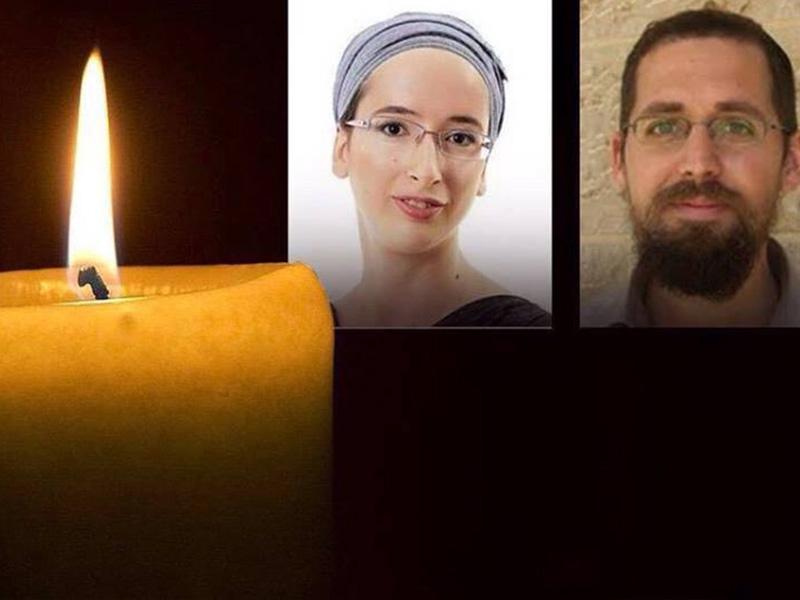Eitam Henkin was a rabbi, a historian and an author of halachic works, so it was perhaps appropriate that a shiur (lesson) looking at his writings would be an appropriate way to memorialize him.
Rabbi Mordechai Torczyner delivered the shiur, citing Rabbi Henkin’s work along with rabbinic commentary on the mitzvah of living in the Holy Land.
The shiur was part of “an evening of remembrance” for Rabbi Henkin, his wife, Naama Henkin, Rabbi Nehemia Lavi and Aharon Banita, who were killed during Sukkot and were among the earliest victims of the recent wave of terror attacks in Israel. The memorial was held Oct. 14 at Yeshivat Or Chaim in Toronto.
Rabbi Henkin was the son of Rabbi Yehuda Henkin and Rabbanit Chana Henkin, who founded Nishmat in Jerusalem as a school to provide Torah learning to women. Rabbi Henkin and Naama Henkin were driving in a car when Palestinian gunmen opened fire, killing them. Their four children, including a four-month old infant, were in the back seat, but were unharmed. Police believe one of the attackers was accidentally shot by his colleagues, prompting them to end the attack.
Rabbi Lavi was killed in the Old City of Jerusalem when he came to the aid of Aharon Banita (Bennett), who was being attacked along with his wife, their two-year-old son and infant daughter by a knife-wielding Palestinian. The Banita family were on their way to pray at the Western Wall. Banita’s wife, Adele, was seriously wounded in the attack, while their two-year-old son was lightly wounded and the infant was unharmed.
Rabbi Torczyner said that although he did not know Rabbi Henkin personally, scanning his website revealed a scholar of broad interests on a wide range of Torah-related subjects. “What emerges is an active and inquisitive mind… suspicious of jingoism and the party line,” he said.
Among the late rabbi’s prolific writings was an examination of the mitzvah of living in Israel. Rabbi Henkin lived with the people of Israel, recognized the differences among them yet felt Jews should embrace one another. He revelled in the unity of the nation on Tu b’Av. Rabbi Torczyner concluded by noting the importance to Rabbi Henkin of the unity of Am Yisrael (the nation of Israel).
Earlier, eulogies for the four victims were read, including one for Rabbi Henkin delivered at his funeral in Jerusalem by his brother, Yagil Henkin.
“Eitam and Naama were not killed by ‘terror,’” Yagil stated. “They are victims of an act of hostility. It was hostility behind the murder. Human beings driven by hatred went out to the road in order to murder Jews, and they succeeded. They took my brother from me and from my siblings; from Yishai they took his sister Naama; from my parents and from Naama’s parents they took their children; from the children – Matan, Nitzan, Neta and Itamar – they took their parents, they took the right to grow up in a family, with the experiences and memories of a warm, unified and loving family. They took from you, who stand here, a talented and optimistic couple, who were destined to greatness. And they continue to take from everyone the sense of security. They were Arab murderers, backed by a too-large segment of Arab society, with far too little principled opposition to murder. An enemy. An enemy who utilizes terror.
“Do not degrade their memory by turning them into victims of a force of nature. Debate about policy, not about the murdered. Do not find justification and sympathy for murderers. Keep your empathy for the children who were left orphans, to the parents who were left bereft. And for the people of Israel, who still have a long way before being able to sit peacefully beneath their vines and fig trees.”
